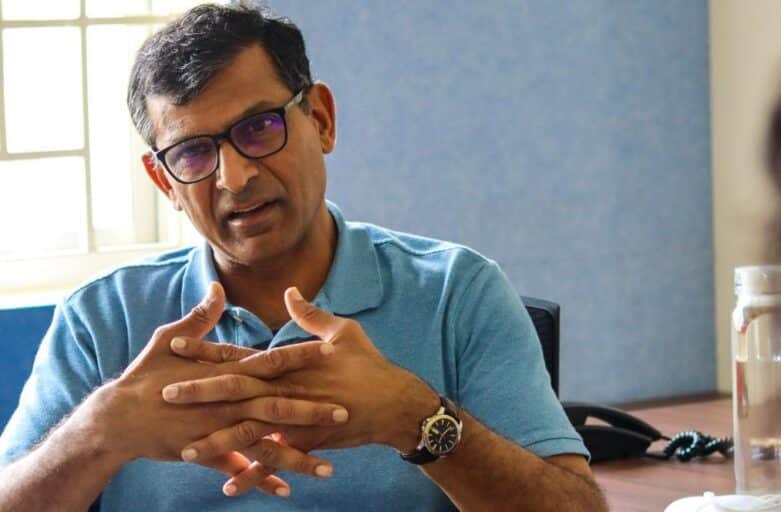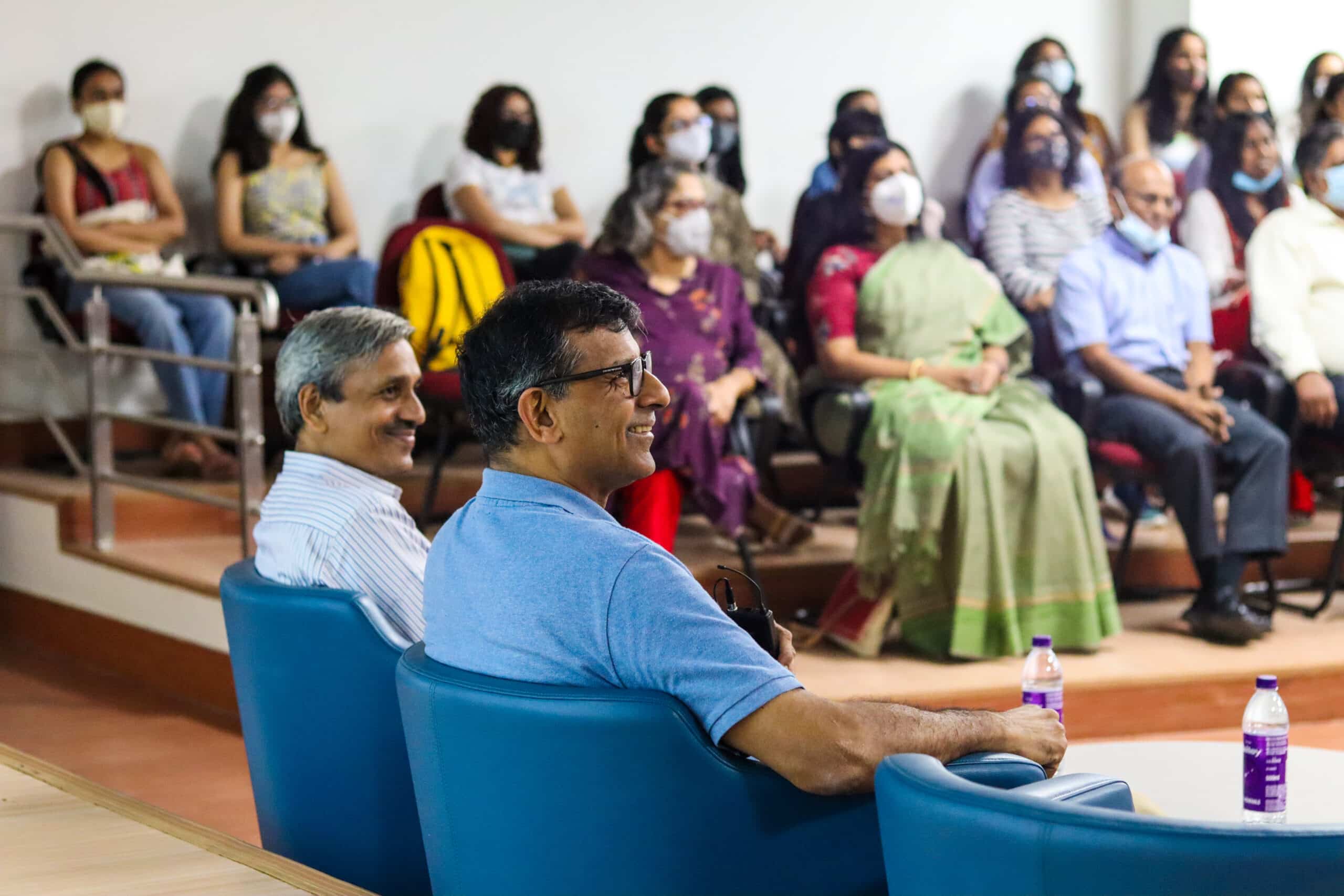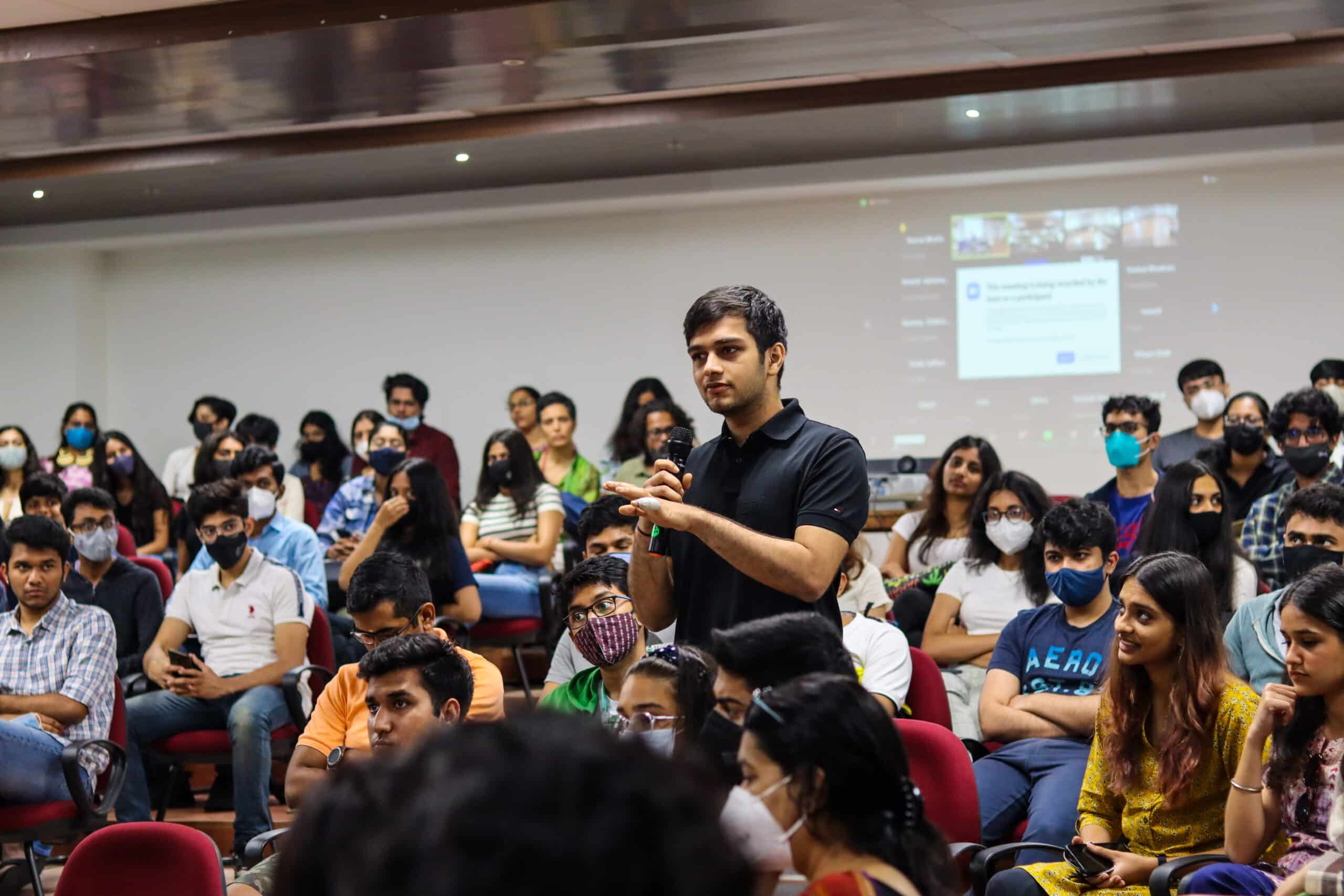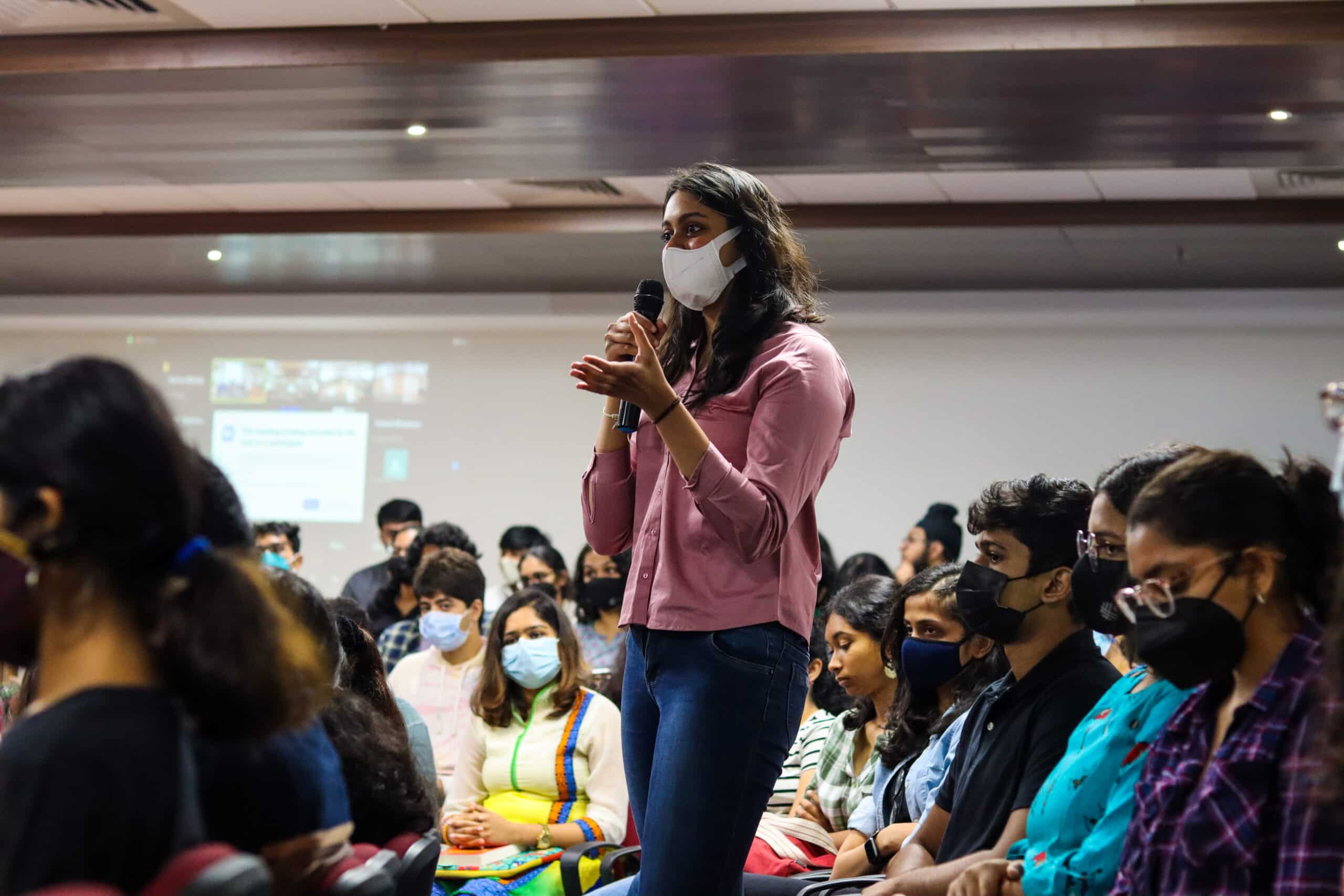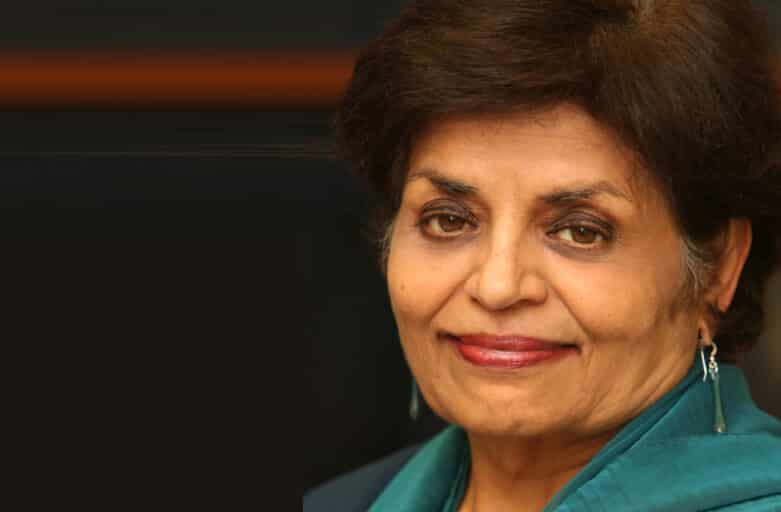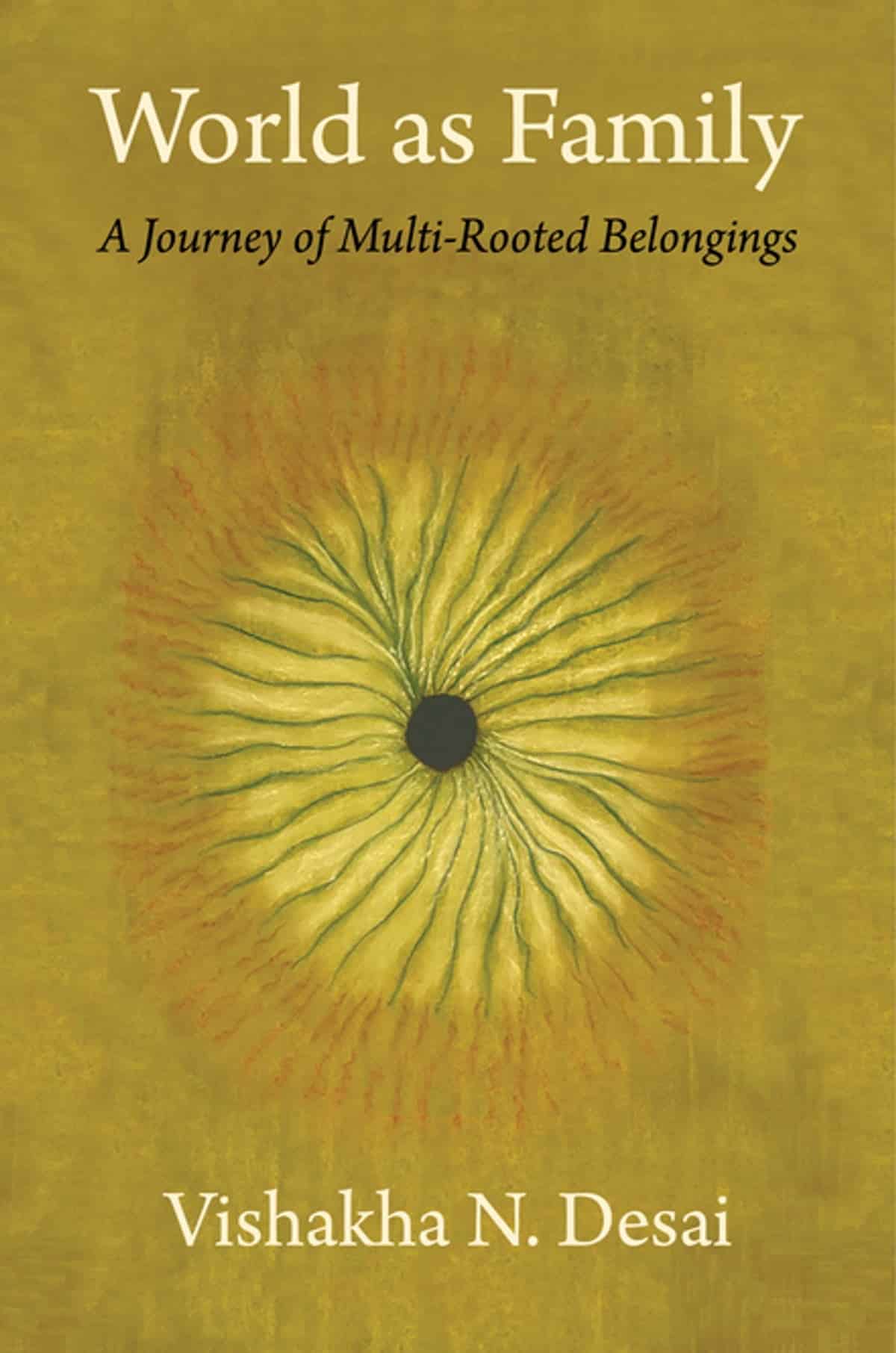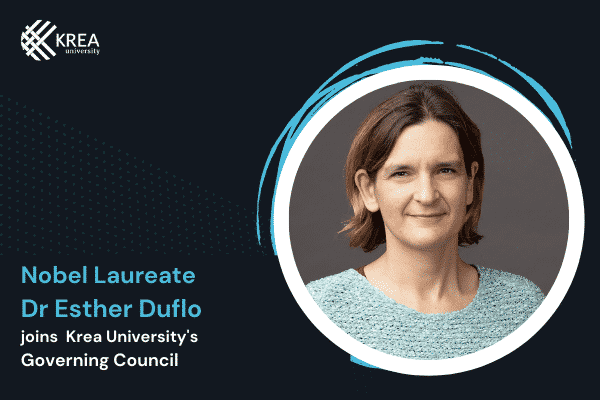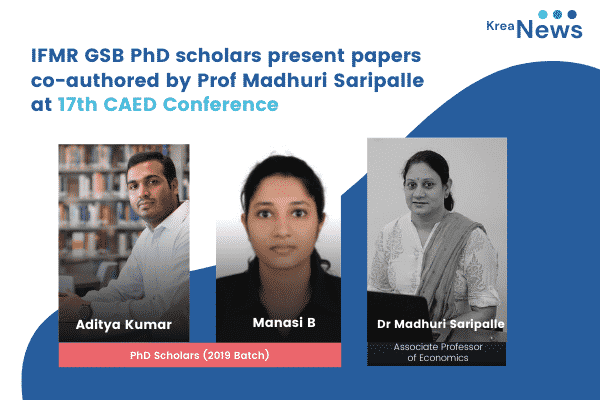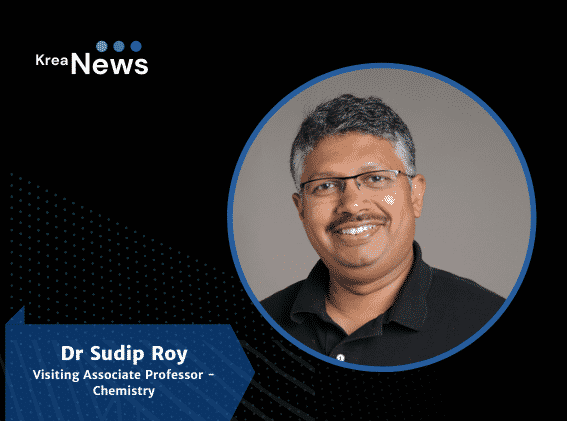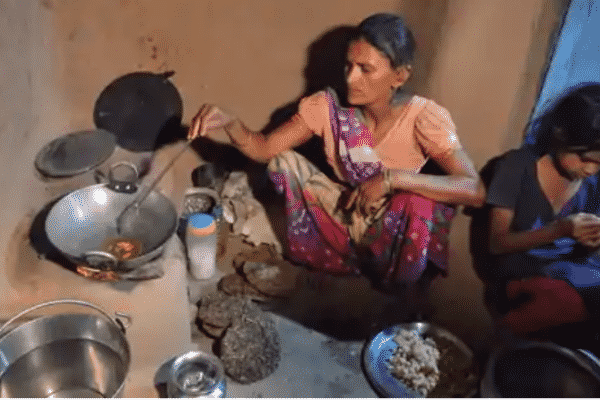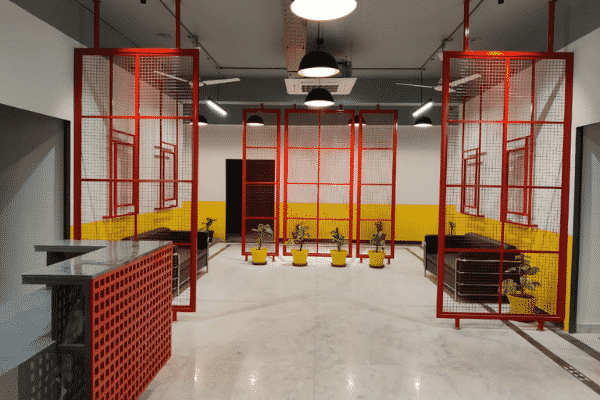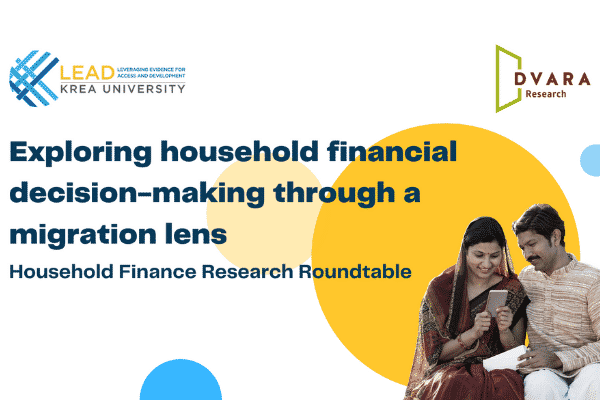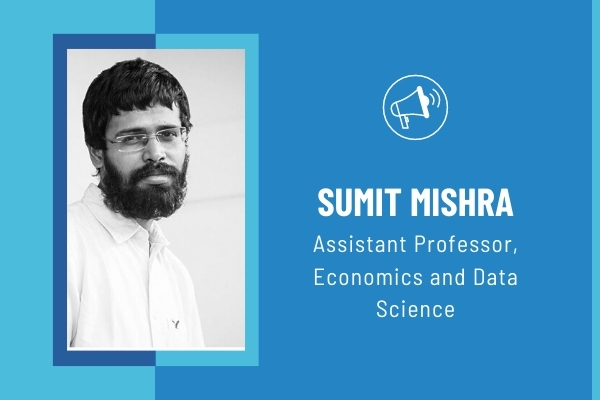5 Students at Krea share their stories as budding researchers
In a world that’s evolving faster than ever before, the most critical of questions are novel and unscripted. Knowledge driven growth that’s fuelled by innovation is the need of the hour.
Students at Krea are on a quest for knowledge, some of them having trod onto the path of research much prior to stepping into the world of Krea. They are curious investigators with research interests across the social, political, scientific, and technical spectrum. Questioning the status quo, attempting to solve the unanswered, challenging their own selves, advancing knowledge, each of them are reshaping the norm.
Hear their stories in their own words.

Prashanthi Subbiah from SIAS Cohort of 2023
Ground Zero
I think my interest in research began as a quest to understand certain aspects, be it an event or a fact that is widely accepted. I have always been someone who asks questions. To bring up an example related to the subjects I have taken up in university, if a major political event took place, I would always ask why was it such a big deal; sometimes I wouldn’t fully understand what news channels were making a fuss about. More often than not, I would ask my parents, and they always encouraged me to seek out answers for myself. After a while, it became a habit for me to do a quick Google search after I find out about something new.
R for Research
Most of my research experience has been at Krea. I was part of a group of researchers in summer 2021, under Prof Sumitra Ranganathan and Prof Naina Majrekar to track slave trade along the Coromandel Coast (with specific focus on Pulicat Lake) by the Dutch East India Company. We made data visualisations and compiled literature on the same. My second research internship at Krea was with the Sharma Centre for Heritage Education, under Prof Shanti Pappu, Dr Kumar Akhilesh, and Dr Prachi Joshi. All 3 of them taught us step-by-step about stone tools found at a Paleolithic site, 70 kms from Chennai. We began with the most basic concepts, such as differentiating between a stone tool and naturally-occurring stones and then delved into how these tools were excavated, preserved and different techniques used to analyse them to obtain more information such as a tool’s use. Using this knowledge, we created an educational video on these topics, which was aimed specifically for school children.
A Milestone
I have done in-depth research essays and papers for my coursework, and for a book I wrote on 20th Century History. This book initially started as a compilation of notes to help myself study, as I wasn’t satisfied with how I was performing in class. I did research, both virtual and physical which greatly improved my understanding of the material. Eventually I published it to help other students and teachers out there in 2020-21.
One chapter at a time
There is a unique feeling that sticks with me every time I step into a research project. At the very beginning, the task I am looking at always seems enormous. I feel like I have a lot to learn and process each time I begin a new project, and that need to understand motivates me to get organised and start putting my thoughts together little-by-little until I’m able to come up with something substantial. This process is a journey of its own, which gets me into the groove of working on a research project.
An evolving worldview
A major takeaway for me has been to always have my mind open, and be ready for new information. Especially in a time dominated by technology, where information is more accessible than ever, it can become overwhelming at times. So, the importance of being ready to assimilate as much as you can, as well as obtaining the important facts from much of the noise has become paramount to how I look at everyday aspects.
Exploring pathways
I am considering a career in research and I believe for any career path, subject knowledge is a requirement, and obtaining it would require some degree of research. These experiences have also been humbling learning experiences, as I have always stepped in with very little knowledge, which goes to show how important having an open mind is. I have also had to be very persistent and have fine eye for detail as well, which have definitely shaped me as a person.

Vishesh Agarwal from SIAS Cohort of 2023
The Starting Point
It all started when I read a lot of history and political science during the pandemic and got to know about the illustrious and rather unknown beauties of Calcutta, the Beth-El Synagogue and the Meghan David Synagogue. I got to know how events transpired and these pieces of excellence were left to rot. Surprisingly these synagogues did not have a rabbi and both of them are rather significant for the Jews around the world, especially our subcontinent. That’s how I had my first research experience.
A gateway to experiences
All my work may not be pure research but I enjoy interviewing people and learning from their lives over the years. For example, I have always been fond of Cholas and their art and I got the opportunity to visit their museum of collected works of Chola artists over the last few decades and spent time with a couple of Chola painters and an academic there, understanding them better. At Krea, I have done more structured projects like with IC3 movement where we conducted a survey of counselors and tried to provide for an analysis and with the help of Bhakti Shah, Krea’s Director of Outreach, I led a project where other collaborating universities were solely represented by professors, while we were represented by our students. Prof Chirag Dhara and I share the same interests in the current radical changes in Chile which we researched and discussed at great length about with other students bringing in ideas from their area of interest. Even though it was my first year at Krea, I got a research opportunity with Equity in Higher Education where I helped them to create a university database for students from the Bahujan community so that they get benefited with better education alongside an inclusive peer group. Lastly, the experience with Professor Kalpita Bhar Paul was greatly inspired by the IPCC report that stated many metropolitan cities of India might not exist in near future, including Kolkata, my home town. I wanted to know more about the subject and my mentor was truly helpful in this regard.
Empathy
In research, even when you are working with hard data and raw facts, the stories behind those facts make you more sensitive to the fact instead of disbanding it as a statistic. This not only helped me with being more sensitive and empathetic but also made me feel inspired by their struggles.
The lessons learnt
I am not too sure about my career options as of now but I see being a researcher as one of the top options for sure. These experiences have definitely equipped me with a lot of tools that will come in handy no matter what. What it has helped me most with is the comfort of saying ‘I don’t know’ because as a researcher you can disprove something but cannot always come up with an alternative and then accepting that you don’t know helps in life too because we are always trying to prove ourselves as someone who knows everything.
New perspectives, varied lenses
Research gives you an opportunity to evolve as a scholar but at Krea every day I see things with new perspectives from different lenses. Even though you might not be aligned to that, it’s important to know the other side and that sensitivity and patience is a gift of research.

Agnij Purushothaman from SIAS Cohort of 2023
The Research and the researcher
Research, to me, is a symbiotic relationship between the researched and the ‘researched’. Sure, the researcher gives life to information, but I feel what makes me enjoy research so much is not the result of novelty, but the process. I tend to work with my information and data as a counterpart, not something under or above me that fosters my interest. My first experience with research was in high school, and I clearly remember trying my best to not be overwhelmed by the scale of the research processes. It was very basic research and data collection and interpretation with regard to stock markets, but I remember coming out of that project a little more stoked to search for more.
The research journey
My first proper research opportunity was over this summer break at Krea. I worked with my peers alongside Prof Soumyajit Bhar on a project that intended to understand notions of the good life and its connection to the climate crisis, consumption patterns and popular sustainability discourse. In particular, a small group including me looked at religion (or the absence of it) and its connection to the good life. It was loaded, and a deeply personal topic I am very passionate about. I can confidently say that it was more than just a means to an end sort of project, it was more of something to work with continually in the future, considering the relevancy and nature of the subject. I look forward to working deeper on the same. Outside Krea, I keep myself engaged with topics I am deeply interested in, some of them include temple history, classical music, astronomy, animal conservation and earth science, among others.
Chapters in revelations
One of the biggest emotional and existential setbacks I have had was during my summer internship at Krea itself. Intricacies of the climate crisis and its implications on the human psyche are immense, and there are already terms like climate anxiety that are floating around. During that time, I encountered overwhelming evidence of the extremely unfortunate trajectory of the global economy and mainly, its implications on the global South. That 1% of the elite that skims off of most of the wealth of the world nagged me, continuously. But I also realised that, even though it may sound cynical and pessimistic, the only way to move forward in research is to sometimes digest it as the bitter reality, and use that as motivation to find something alternate that can propel your mind out of that rut. To me, that was turning away from economic solutions and looking at political and environmental solutions for the inequitable economy. That helped me steer around the wealth inequality crisis, and look for light down that dark tunnel.
Gearing up for the research trail
I can’t affirm it yet but I am definitely considering a career in research. A professor at Krea once explained the scope of research to me in the form of a pie. What is already out there constitutes about 90% of the information that is used and interpreted. Novel research topics, however, constitute just about 10% of the pie. In that 10%, individuals trying to decode and find something novel, are mere specks. My personality has definitely changed through these experiences, and I consider making peace with the fact that novel and meaningful research comes from a deeply focused and determined headspace and methodology is the first step toward gearing up for a career path in research, and that’s something I intend to primarily work on.
Accumulating knowledge, amplifying learnings
There is no point in research if you don’t come out of it with little to lots of changes in your perceptions of the subject matter. Instead of evolving, I’d rather say that I increment what I find meaningful from my research to my personality. It’s more of a cumulative journey of the self through research than a metamorphic one that is more like evolving to me, personally. These research experience mainly add to the knowledge that I already have, reinforcing it, correcting it, and updating it constantly.

Naveen Prasad Alex from SIAS Cohort of 2022
Turning passion into pathway
There was no ground zero for me, because ecology or wildlife butterflies have been a passion for me since my childhood and it was just about taking my passion to the next level, getting it more systematic and scientific.
It’s all about the butterflies
In Krea most of my research experiences were under the mentorship of Prof Shivani Jadeja, the studies on butterfly lifecycles and migration. The study on migration being covered under research internship and research assistance stints and two short communication papers have been published related to the migration study we did.
My capstone thesis revolved around butterfly migrations too. One of the remarkable butterfly migrations in India is The Danainae butterfly migration through southern India. Even though some studies have been based on limited data and opportunistic observations, this phenomenon remains largely understudied. My thesis utilised citizen science data on the occurrence of Tirumala limniace, Tirumala septentrionis Euploea core to find out seasonal changes in the occurrence of these butterflies, indicating potential migratory patterns. This study helps to better understand migratory patterns for Danainae butterfly migration through southern India.
Research comes with its own set of unique experiences, for me one of them was around my capstone thesis. I was planning to work on a topic which involved quite some lab work, it was on how temperature variations affect the feeding patterns of butterfly larvae during the metamorphosis. But thanks to COVID, access was limited and I had to think on my feet to work on something that I could still do within the limitations of the world shutting down. I had to change the topic to ‘Tracking butterfly migration in India using historic and citizen science data’ and even though it is challenging, the study results have been very interesting, with a potential of getting published.
Penning new chapters
I plan to pursue a career in research and academics and I am at the moment undertaking a Masters at University of Helsinki in ecology and evolution. Having professional research experience, especially at Krea, gave me more clarity on what I should do, and essentially helped identify my specific interests within ecology itself.

Meghana Mantha from SIAS Cohort of 2024
Where it all began
I have been into active research for the past 5 years. It all started with reading and observing my surroundings and the curiosity to know more about topics that interested me. Some of the topics that interest me but are slightly odd are Colleges & Admissions, Career Services, Countries, and Cultures, and I haven’t really explored Academic Research or worked in proper research setting at a university. This interest led me to take up a Research Project under Professor Soumyajit Bhar on the topic of Consumer Behaviour, Choices, and Patterns under factors like Social, Individual, and Cultural. This project was interesting and dealt with the topic of Sustainable Fashion and it was very new to me. Hence, exploring the topic and getting involved in the process was quite fascinating and insightful.
In pursuit of a passion
I started my Journey as a Researcher and Writer at a few American Student-led organisations and then progressed towards my passion which is College Admissions and Career Services. Over time, I researched more about colleges, what makes a good profile to get into a top college? How can one find opportunities as a student? And many more questions like that, I’ve also mentored many students in the past five years in getting into their top college choices or paid internships. In this process, I fell in love with Outreach and Communications. I enjoyed networking with people, building connections, and helping Teen Entrepreneurs.
In the pursuit of improving my skills in the field of Research in the domain of Education concentrating on Admissions and Career Services, I started working with a Harvard Master’s Student. My Research focuses on Top Colleges for Undergrad in India and Abroad specifically focusing on the USA, Domestic and International Competitor Analysis, Student Profiling, and Blogging. I love my work on these and I am looking forward to pursuing my passion and research interests further.
The Evolution
When I started off with my journey in research at the age of 14, I was in a mindset that every research project that we take up regardless of the domain is the same but eventually, after working on Academic related research projects where I had to work with a team, go through the process from the start, conduct interviews, transcriptions, analysing the info we had, was very different compared to the work that I am involved in now, which mostly is best done alone, the research, the questions we ask and, the people we interact with are completely different. This distinction gave me an understanding of how research works in different fields.
Exploring and discovering
I am interested in pursuing a career path in research but I am still exploring and figuring out if I should pursue research as an academician or work towards my passion (Research, Outreach, and Communications) in College Counselling, Admissions and Career Services. Working with many experts in different fields has given me interesting perspectives and experiences and to an extent shaped my personality positively. At the moment, I am happy that I am exploring and working with people with similar interests and where I am at, excited to see where this goes and what the future holds for me.

